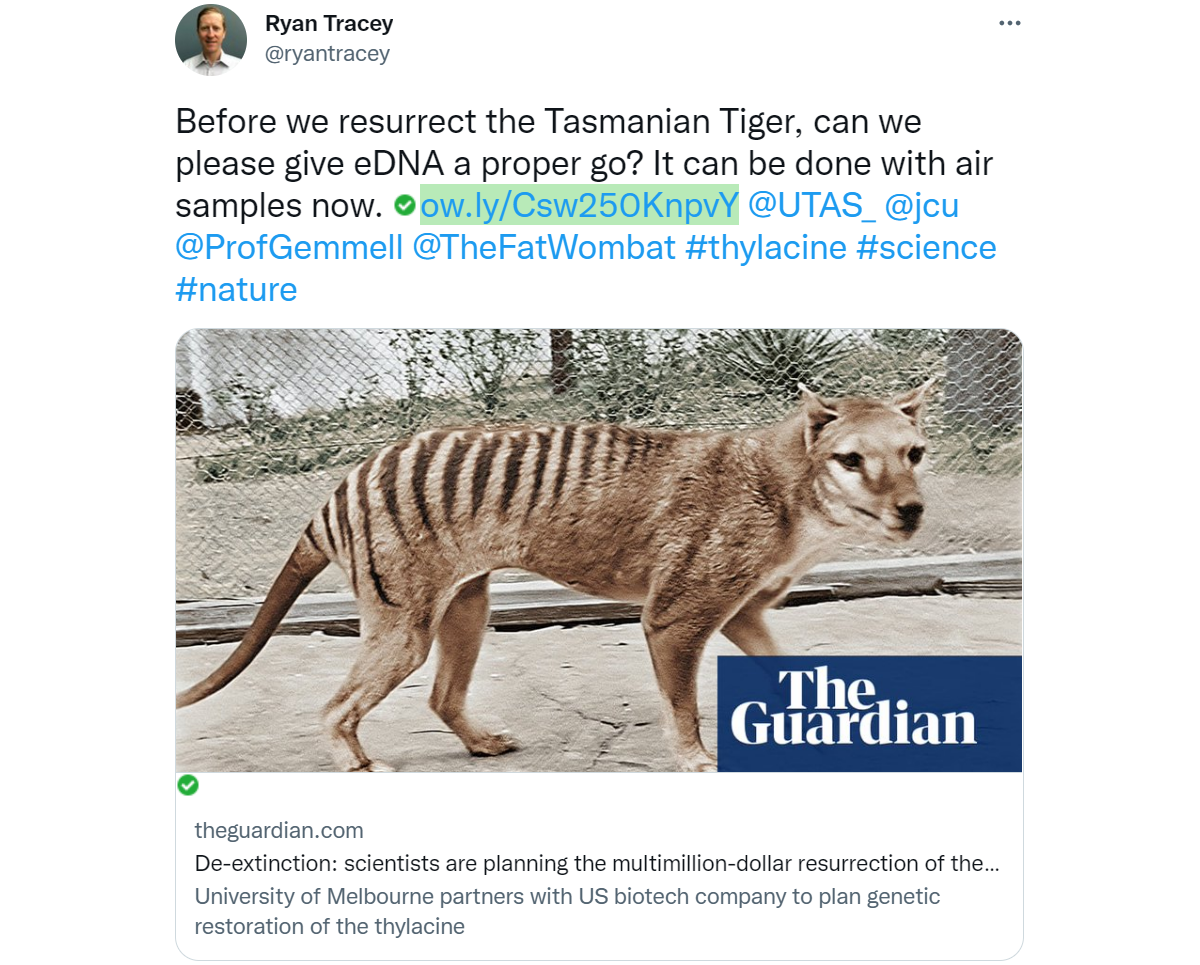As a blogger, I have been struggling.
Historically it has been a rewarding pastime for me – both personally and vocation wise – but it has also been hard. It’s time consuming, it needs large doses of vulnerability, and on celebration the response from my fellow “professionals” has been downright unprofessional.
Merge that with some personal matters and a dwindling readership, I’ve been questioning if it is really worth it any far more.
Prior to putting up I do not know before this year, an illustration tweeted by Harsh Darji convinced me to give it an additional crack and I felt passionately enough about reworking traditional digital instruction into blended learning experiences to observe it up with a opportunity very last hurrah.
Which prompted me to question: What do I sense passionate about?
After ruminating about the problem for a amazingly extensive time, I’ve concluded that my passion is character and its conservation.
I studied environmental biology at uni and obtained my first entire-time career in water management, before the trajectory of my job thrusted me deep into the company realm. Which isn’t essentially a poor factor, it is just various.
Soon after additional pondering, I also recognised that I’m fascinated by cryptozoology. Not so considerably of the Bigfoot variety – whilst I do locate that entertaining and in some cases useful, in particular when the investigators use cutting-edge technological innovation but somewhat more together the lines of whether the Tasmanian Tiger (Thylacinus cynocephalus) nevertheless exists on the Apple Isle or in pockets on the mainland, or regardless of whether big cats (Panthera spp.) roam the Australian countryside.
Possessing carried out a good share of it myself, I can convey to you that organic surveying is a challenging company. Standard techniques of identifying the many species that inhabit a supplied area – eg observation, tracking, scat examination, cage trapping, movement-sensing photography – are a little bit strike and pass up, to be frank. To get a feeling of the magnitude of the task, picture trekking by means of the Amazon forest… you know jaguars are living there, but you pretty much definitely will not see a single.
In that light-weight, finding a cryptid is difficult – usually they wouldn’t be cryptids. Even when movie evidence is forthcoming, it is infuriatingly inconclusive.
Which sales opportunities me to an additional interest: Environmental DNA. Abbreviated to eDNA, this time period refers to the evaluation of minute traces of organic and natural make any difference in samples of soil, h2o and even air to detect the wildlife that is present in the vicinity.
I consider eDNA a sport changer, not only for cryptozoology but also for mainstream ecology. A scenario in position is the College of Otago’s look for for the Loch Ness Monster. While this foray failed to obtain the fabled plesiosaur, it did showcase a novel technique to organic surveying that discovered proof of a whopping 3,000 species in the h2o. Not only aquatic animals these types of as salmon, pike and eel, but also terrestrial animals this kind of as rabbit, badger and vole (presumably mainly because of rain washing detritus into the lake from the surrounding catchment).
I’m so enamoured by eDNA that I urge the scientific group to give it a proper go right before we “resurrect” the Tasmanian Tiger through Jurassic Park-fashion genetic engineering.
I’d also be delighted to see it used in the hunt for large cats down below, if not to confirm they exist, then to demonstrate that they don’t.
Obtaining claimed that, I realise eDNA is no magic bullet. To begin with, it’s a snapshot: for illustration, the University of Otago’s study failed to discover animals this sort of as seals and otters which are regarded to visit the loch. Then of system you have the politics of science to contend with: fuelled by anecdotes these kinds of as the a single about the leopard scat sampled from a area zoo becoming determined as “dog” by a cautious lab.
Regardless of its limits, however, I contend that eDNA will revolutionise our review of biodiversity.

Lest I stray much too far off matter, I’ll conclude by reaffirming what we already know about Studying & Advancement: we also reward from the progression of know-how.
Amid the increase of digital actuality, synthetic intelligence and the metaverse, what do you consider to be our match changer?



